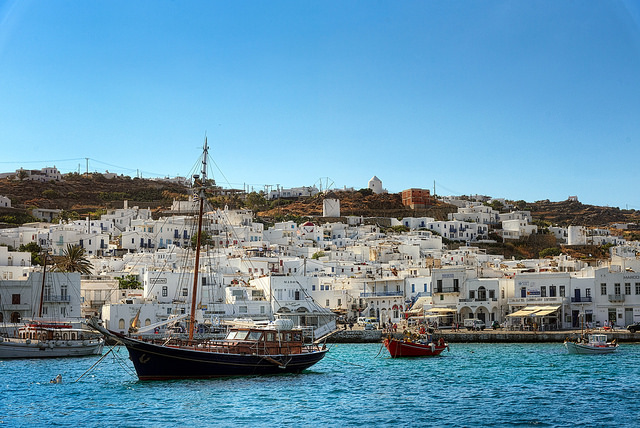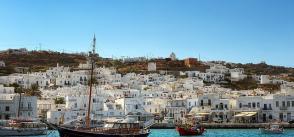
Circular water economy introduced on Greek islands
On Thursday and Friday at Lavrio in Attica, 27 partners, including some leading European universities, will be presenting the HYDROUSA project, which is getting off the drawing board and into the field this month. Funded by the European Union’s Horizon 2020 program, its aim is to use water from nonconventional sources, including wastewater, to diminish or ideally eliminate the need to bring in fresh water from elsewhere and to reduce the cost of freshwater.
HYDROUSA intends to set up, demonstrate and optimize innovative on-site nature-based solutions to recover fresh water, nutrients and energy from wastewater, rainwater, groundwater, atmospheric water vapor and seawater to produce marketable products. This is seen helping to increase agricultural production and boost the economic activities of water-scarce Mediterranean areas.
A number of islands and coastal areas in the Mediterranean face significant water shortage problems resulting in environmental problems and a reduction in agricultural activity. Furthermore, the prices people and businesses pay for water are often very high due to desalination and/or transportation costs.
Read the full article by George Georgakopoulos via Ekathimerini.
[Photo by Joe deSousa | Flickr]







